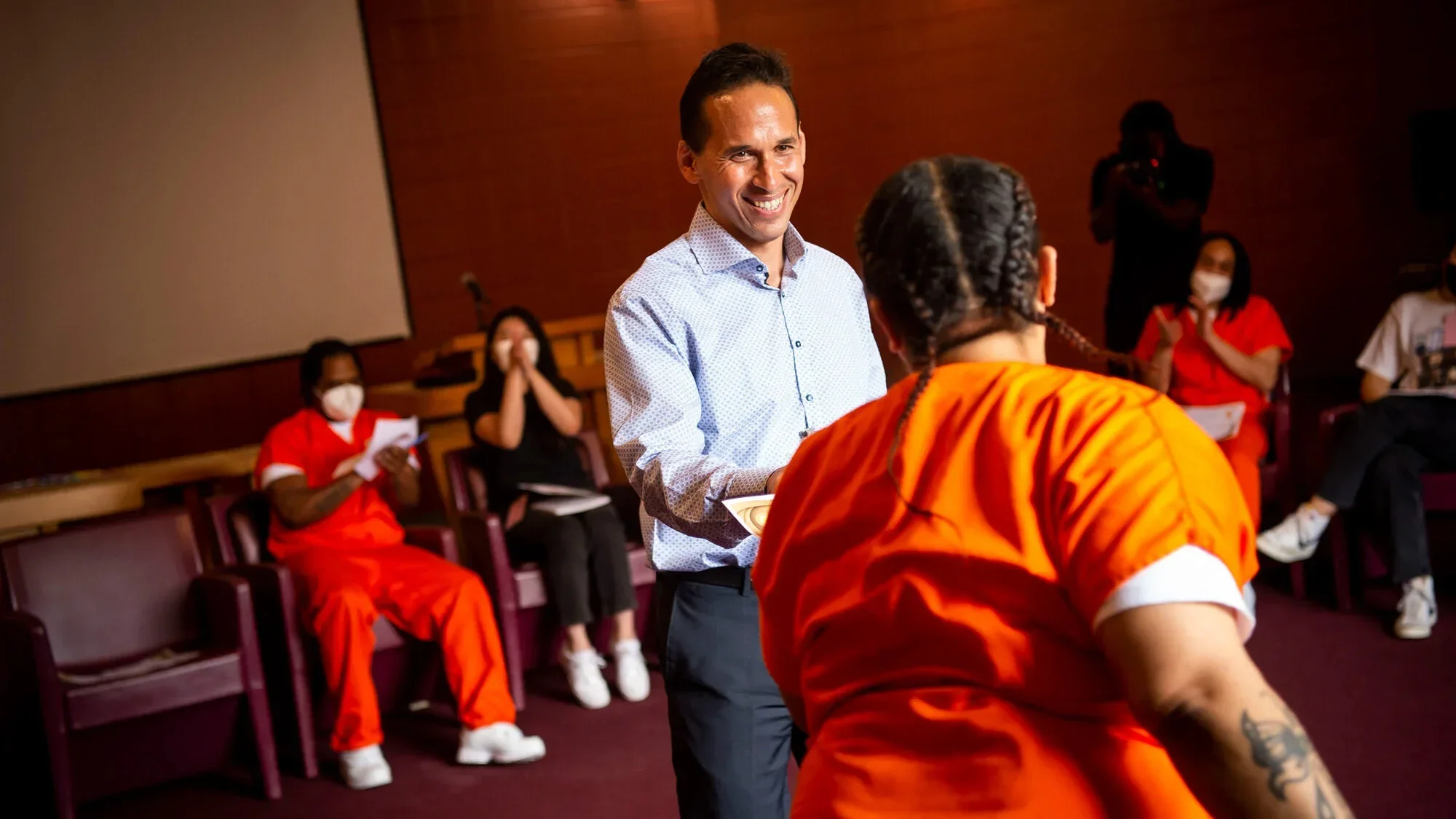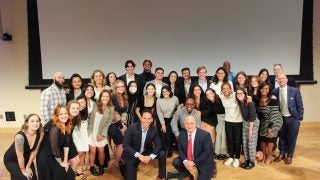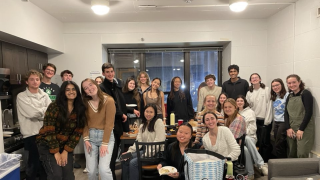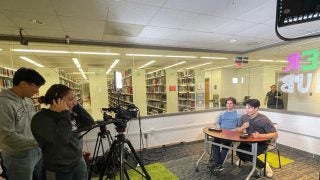I have taken many powerful courses at Georgetown, but none have had the same impact on me as Marc Howard’s course, Prisons and Punishment. I am an economics major with minors in environmental studies and English literature, and although I have loved the classes I have taken in my respective minors and majors, I have also welcomed and loved taking courses outside of my particular disciplines. Professor Howard’s course, in particular, is completely unrelated to my fields of study and yet has turned out to be my favorite and most unique course I’ve taken at Georgetown.
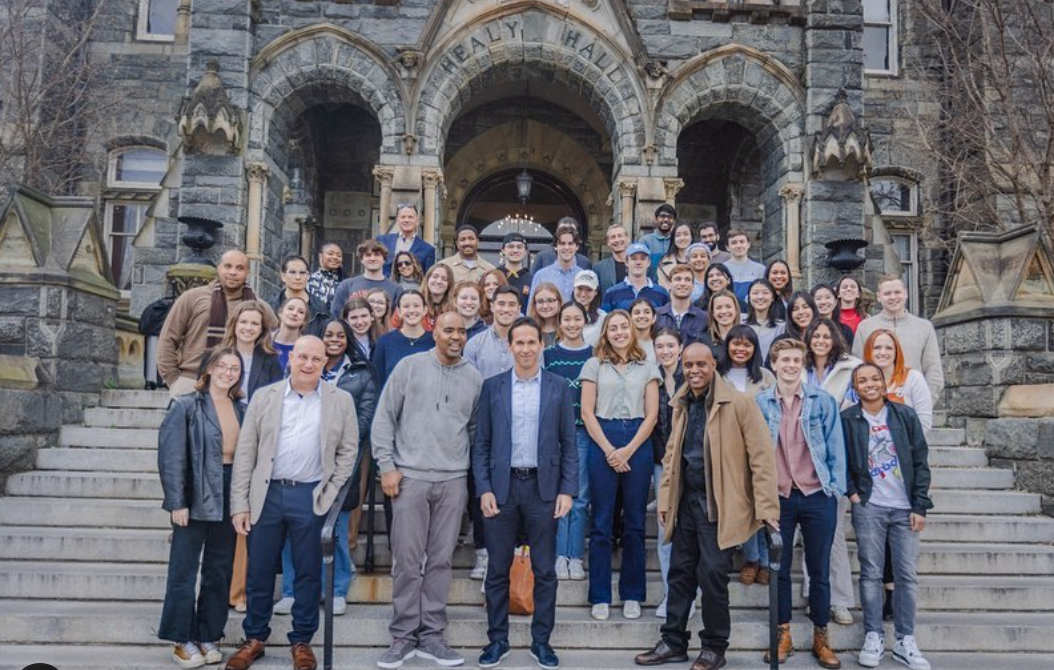
Prisons and Punishment is an elective course I took at Georgetown in the Department of Government that focused on understanding mass incarceration in America. We learned about the transition from slavery to mass incarceration and the ways the American prison system today still resembles its tragic past. I was very interested in these topics in high school and came to Georgetown aware of Professor Howard’s course. Professor Howard is a prominent criminal rights lawyer with a focus on wrongful convictions and has been responsible for freeing many men and women who were wrongly incarcerated. In the course, we learned directly about incarceration and prison in America in addition to Professor Howard’s work at the Prisons and Justice Initiative (PJI) at Georgetown.
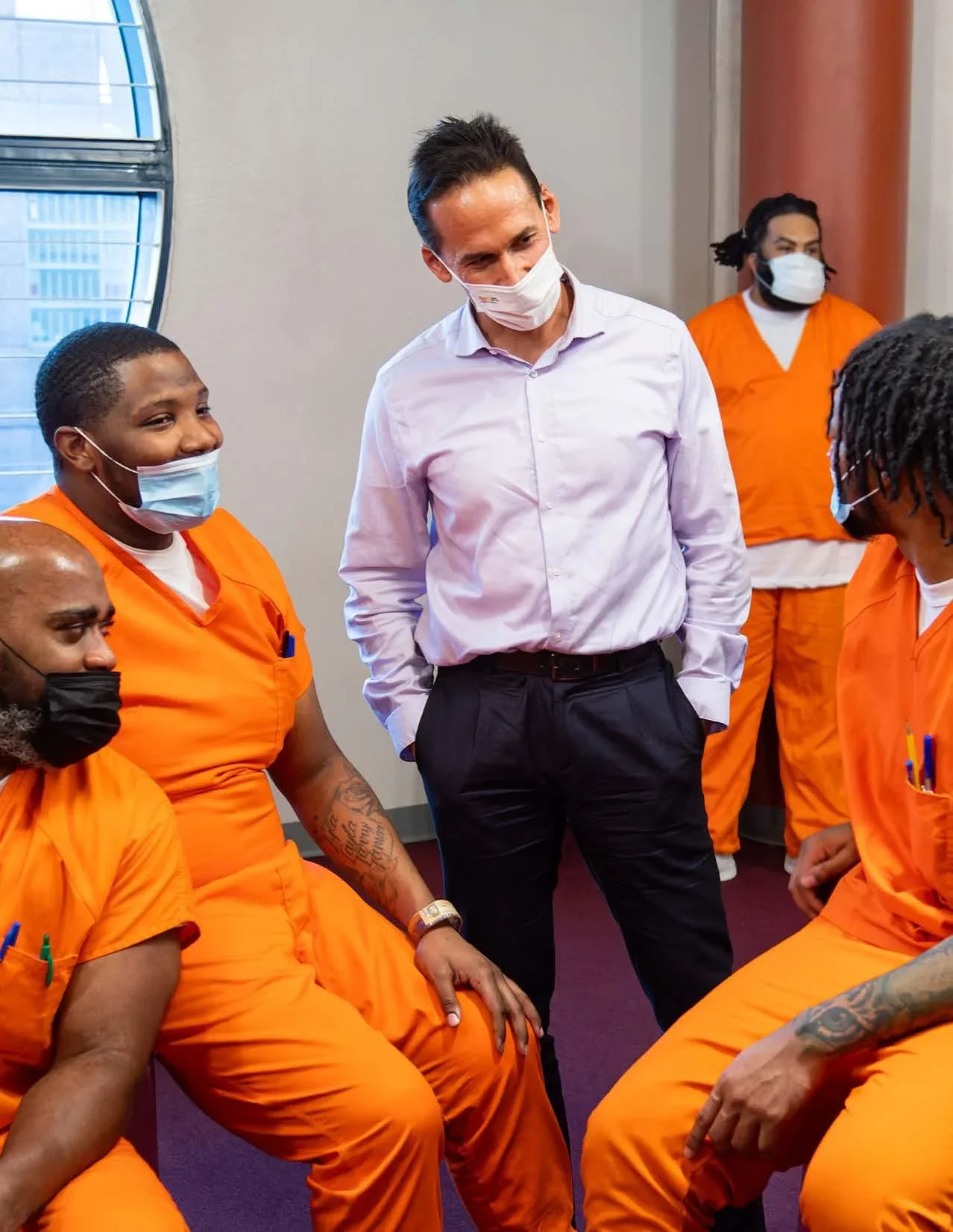
Beyond the few courses Professor Howard teaches at Georgetown, he runs and implements programs in which Georgetown courses are offered to incarcerated and formerly incarcerated people. Georgetown is one of the few universities that implements an in-prison academic program and has been an incredible effort to reduce recidivism and encourage rehabilitation for incarcerated people. The men and women in DC jails have the opportunity to leave prison with greater knowledge and the great benefit of a Georgetown degree.
Professor Howard’s impact is palpable and the most memorable moments in the course were visits to our classroom, both virtual and in-person, from formerly and currently incarcerated people. We spoke to nearly a dozen different individuals, both men and women, who had experienced prison in America, many of whom now work at Georgetown to promote prison reform at PJI. We had heartbreaking virtual conversations with individuals on death row and those in maximum security prisons, many of whom are being imprisoned for crimes they did not commit.
One story that was particularly heartbreaking was Anthony Apanvitch’s. Anthony was sent to death row for a crime he did not commit in the 1980s. He was cleared by DNA evidence and released, but due to a horrible statute in Ohio law, he was sent back to death row a decade later. Anthony had spent ten years with his wife and grandchildren before he was forced to return behind bars. Anthony’s story and many others display the inequities of the criminal justice system and the dire need for reform.
As part of the course, we also visited a DC jail and spoke directly to incarcerated people. We spoke in a large group about our families and interests, and then more intimately about our goals. It was an eye-opening experience and a wonderful opportunity to connect with individuals I would never otherwise have had the opportunity to know. In addition to the DC jail visit and all the visitors we had in the classroom, I had a real opportunity to not only learn about prison in America but understand deeply the individuals who are affected by it. It was a harrowing and at times very difficult class, but had a great impact on me and my understanding of incarceration in America.
Prisons and Punishment was unlike any other course I have taken at Georgetown. The things we learned and the people we met will remain with me forever. Although my career interests do not relate to law and criminal justice, I still remain very passionate about prison reform and consider the course to be one of the most incredible classes I have taken at Georgetown.
